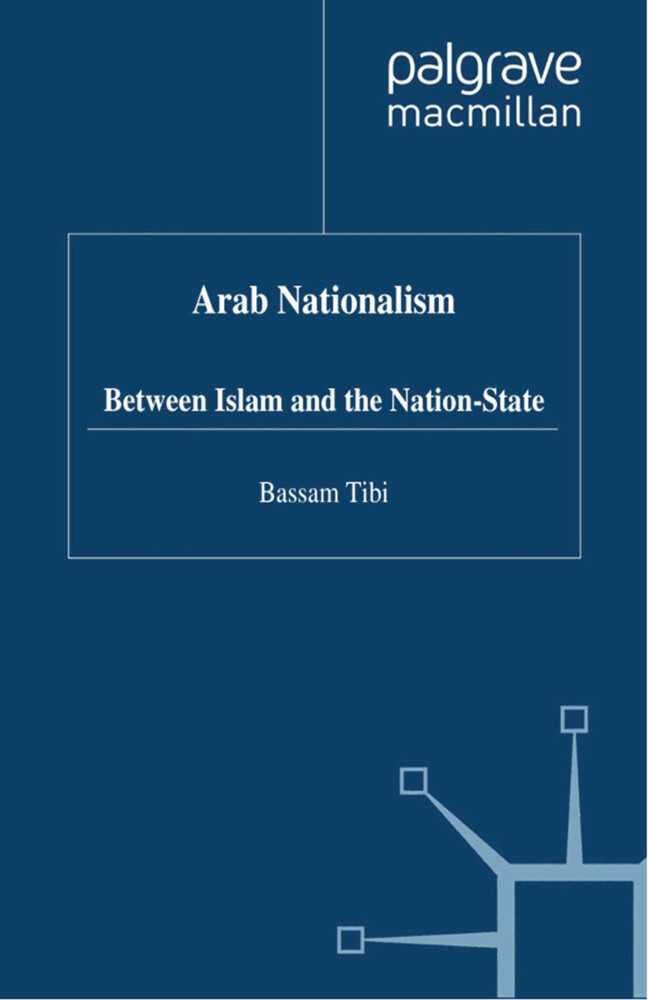
Zustellung: Fr, 02.05. - Di, 06.05.
Versand in 3 Tagen
VersandkostenfreiBestellen & in Filiale abholen:
The third edition includes a new Part Five on the tensions between Arab nationalism and Islam arising from the crisis of the nation-state and of the de-legitimisation of Pan-Arab regimes. The effects of the Arab defeat in the Six-Day War 1967 and the rise of political Islam in the 1970s are the focus of the new part. The background of the analysis of the impact and function of nationalism and its contribution to social and political change in the Third World, taking the rise of nationalism in the Middle East as a historical example. Professor Tibi concentrates on the period after the First World War, when many Arab intellectuals became disillusioned with Britain and France as a result of the occupation of their countries. One focus of this study are the writings and influence of Sati' al-Husri on Middle Eastern politics. Professor Tibi illustrates the connection between modern Arab nationalism and nineteenth-century German Romantic nationalism, which will be of particular interest to the English reader. Professor Tibi concludes that while nationalism has played a necessary and important role in the movement for national independence in the Middle East, it has since developed into an ideology which seems to obstruct further social and political emancipation. This third edition, brought completely up to date by a substantial new introduction and two new concluding chapters, will be of particular interest to historians and social scientists dealing with nationalism and crises of the nation-state as well as to students of the Middle East and contemporary Islam.
Inhaltsverzeichnis
Foreword to the Third Edition - Preface to the Second Edition - Foreword to the English Translation - A Note on Sources, Quotations and Transliteration - Introduction to the Second Edition: Arab Nationalism Revisited - PART 1: AN ATTEMPT TO DISTINGUISH THIRD WORLD FROM EUROPEAN VARIETIES OF NATIONALISM - The Origins of Nation Formation and Nationalism in Europe - Social Science Interpretations of Nationalism and of Nation Formation in the 'Third World' - The Role of Nationalism and Nation Formation in the Process of Emancipation of the Peoples of the 'Third World' - PART 2: THE EMERGENCE AND DEVELOPMENT OF NATIONALISM IN THE ARAB WORLD BEFORE THE SECOND WORLD WAR - The Historical Background of Arab Nationalism - The Genesis of Arab Nationalism - PART 3: SATI' AL-HUSRI'S THEORY OF POPULIST PAN-ARAB NATIONALISM AND ITS PHILOSOPHICAL ORIGINS - The Origins of al-Husri's Definition of the Nation - The Foundations of Sati' al-Husri's Political Theory - PART 4: AL-HUSRI'S THEORY IN ACTION: POPULIST PAN-ARAB NATIONALISM IN COMPETITION WITH OTHER POLITICAL CURRENTS IN THE MIDDLE EAST - Pan-Arab Nationalism versus Pan-Islamism: The Role of Islam in al-Husri's Writing - Pan-Arab versus Local Nationalism I: al-Husri and the Egyptian Nationalists - Pan-Arab versus Local Nationalism II: al-Husri's Critique of Antun Sa'ada and his Syrian Social Nationalist Party (SSNP) - Postscript - PART 5: BETWEEN ARAB NATIONALISM AND ISLAM - Notes - Bibliography - Index
Produktdetails
Erscheinungsdatum
11. April 1997
Sprache
englisch
Auflage
3rd ed. 1997
Seitenanzahl
384
Autor/Autorin
B. Tibi, Bassam Tibi
Verlag/Hersteller
Produktart
kartoniert
Abbildungen
XVII, 365 p.
Gewicht
482 g
Größe (L/B/H)
216/140/21 mm
Sonstiges
Paperback
ISBN
9780312162863
Entdecken Sie mehr
Pressestimmen
' . . . impressive study of Arab nationalism. It should quickly find its way into the required reading lists of all serious students of Arab politics, for it fills a need that has not been met thus far in the English literature. ' - Michael C. Hudson, International Journal of Middle East Studies
Bewertungen
0 Bewertungen
Es wurden noch keine Bewertungen abgegeben. Schreiben Sie die erste Bewertung zu "Arab Nationalism" und helfen Sie damit anderen bei der Kaufentscheidung.









